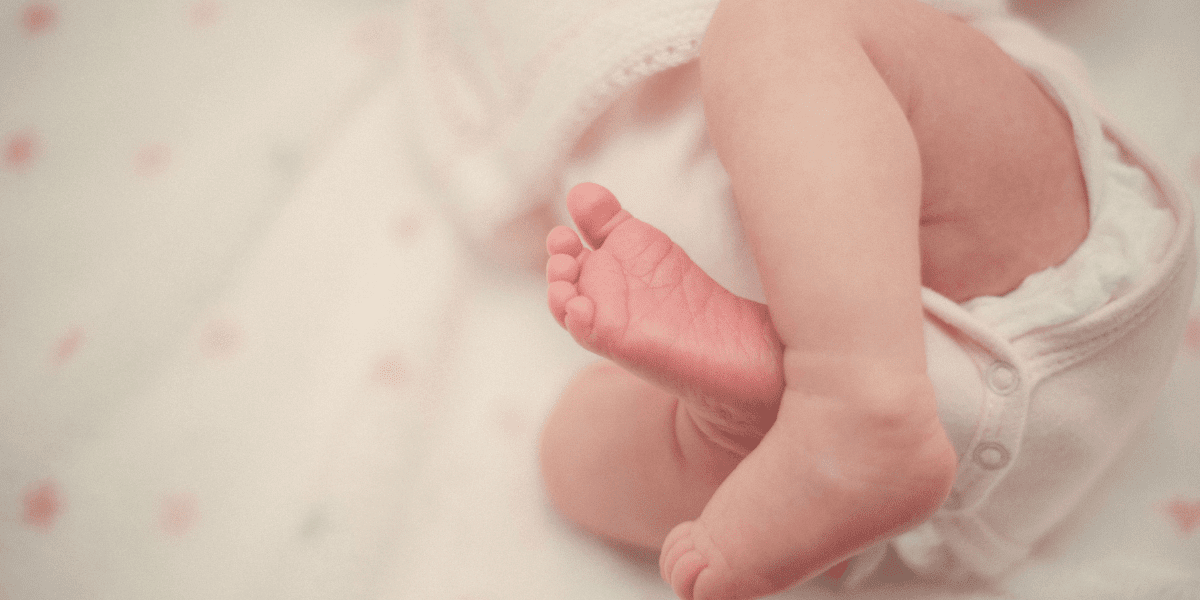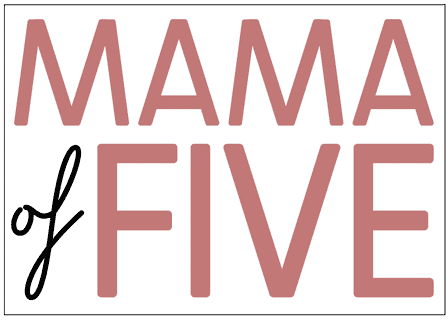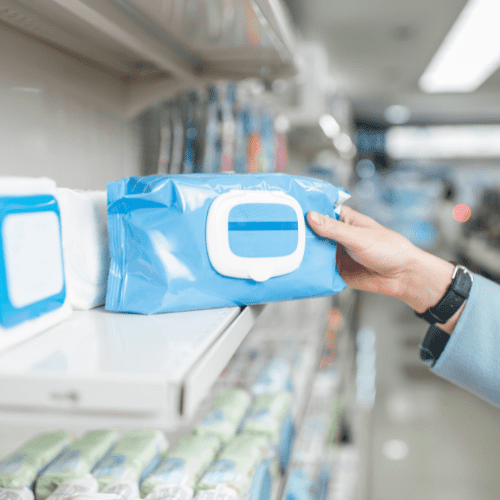After the Welcome Home banners and the fanfare, it’s just you and your baby. Your bundle of joy adds a special touch of warmth to your home, and you wouldn’t have it any other way. You love getting to know your baby.
All the cuddly, squishy, and even smelly parts amaze you. Yet, there’s a limit to how much smell can come out of a tiny human before you start being alarmed.
Every human being farts and so do babies, but sometimes the smell gets a little strong. Normal baby farts don’t have a strong smell, so if your baby’s gas is stinking up the house, you might need to be concerned.
As an Amazon Associate, I earn from qualifying purchases. The links below maybe affiliate links. Please read my disclosure policy for more information.
[adthrive-in-post-video-player video-id=”AM68y4vF” upload-date=”2022-03-21T14:29:00.000Z” name=”Why do your Baby’s Farts Stink So Bad?” description=”” player-type=”collapse” override-embed=”false”]
Why do babies fart?
You would think these humans who aren’t longer than your forearm would not have learned how to break wind yet. The truth is farting is as natural as breathing. In fact, breathing and farting have one thing in common- gas.
Both are healthy for our bodies, but too much farting could indicate a bigger problem.
If your child seems to fart a lot more lately, their tummy may have more gas than usual. Your little one will be a lot fussier because of how uncomfortable the gas makes them. Excess gas will make your infant act upset.
They could start crying or just be visibly uncomfortable. Farting helps to relieve the baby and keep the parent from worrying.
There are a couple of reasons why your baby may be gassy and need to fart often.

Maturity of the digestive system
Like all its other systems, a baby’s digestive system is still in a phase of growth. It is in a phase where it is getting used to all the work it has to do. This sometimes puts a strain on it because the bacteria it needs to work haven’t all developed in the baby’s tummy.
This is why some babies might not produce extra gas but would need to pass it more often. Farts, like other waste products, cannot be held for too long in the baby’s system without consequences.
Constipation
Speaking of their sensitive tummies, babies struggle with constipation too. Changing diapers is one of the less fun jobs of having a baby because of their poop, but it’s also worrying when there’s nothing to change.
Baby poop is soft and often comes out easy, but babies who are fed on formulas sometimes have trouble with it. Babies who have started solid also suffer this too.
Now because the baby’s body still needs to let go of waste, there will be a lot of farts. In this case, a lot of them will be stinky, just like adults.
Stress
Just like adults, babies also have to deal with stress levels increasing. Your baby may either have naturally high levels of anxiety, or they may be reacting to you.
An anxious baby is often surrounded by anxious atmospheres, and their bodies can’t just handle it. Let’s be honest, adults also have to pee or fart more when anxious. Babies aren’t any different.
Sometimes, you can’t keep your stress away from your baby, but you need to continue talking to them and giving them what they need. Paying them attention may help your anxiety which will further help the baby relax.

Food Sensitivity or Intolerance
Like adults, diet also has a huge reflection on why your baby is farting or has a stinky fart. Some formula-fed babies may be sensitive to some things in their formula. Some may even be outright allergic to some things.
This is a lot of extra pressure to a system that is already going through the stretches of growth and will most likely lead to bloating and, yes, farting.
A baby being fed breast milk could also have bloating issues. A change in a mother’s diet can affect the quality of milk and make the baby uncomfortable. In essence, if your farts are stinky, your baby’s farts will most likely be too because of something in your diet.
You need to oat attention to the times your little one was fussy and gassy. You just might link it up with something in your diet their little body doesn’t agree with. Taking whatever it is out of your diet might be the perfect solution for your baby.
Feeding
What you feed a baby is as important as how you feed them, so your feed technique might cause extra gas. How you hold them and the aftercare you give after feeds may contribute to the amount of gas your baby has.
When you don’t burp your baby after the feeding session, there will be extra gas. All that gas will only end up at the other end of your baby. Gas piles up in your baby easily, so burp them regularly; during and after feeds are good times.
Bubbles that form in bottles of formula also introduce gas into a baby’s body. When you shake a bottle, give it some time to settle before feeding the baby, so the air bubbles pop.
If your nipple or that of the bottle doesn’t have milk in it when a baby latches, they may suck in air, and you will have to deal with it later. You need to hold the nipples or bottle properly to avoid air pumped into the little one’s stomach.
You may also have issues with your baby’s latch. More than a few babies have loose latches, so even if the nipple is full of milk, they suck in air at every turn. Your job is to adjust the latch as needed and avoid air bubbles.
Why do these farts stink?
Babies who are still being raised on either breast milk or formula don’t have a lot of smelly farts. When your baby starts eating solid food, the smell can be bad enough to tempt you to take them to the ER.
To effectively understand and manage the reasons for the extra bad smell coming from your baby, you need to know their normal. You need to know what their gas habits and smells look like on a regular day.
How often they pass it and whether or not it has no smell are two questions you must always have the answer to. You need to watch your child closely so you can judge better on what to add or take out to bring your child to be normal. It’ll also help you not to panic every time.
Here are certain smells you can get from your baby’s fart and what they mostly mean.
Sulfur
Sometimes, a baby’s fart can smell like sulfur which can be terrible. Even in small amounts, sulfur can produce a particularly disturbing smell. It gets into your baby through fruits and vegetables a mother may have eaten, which then passed into the breast milk.
Some vegetables with high sulfur content are Broccoli, Cauliflower, Brussel sprouts, Beans, Kale, and Spinach.
If you realize that you have to take any of these veggies, you don’t have to worry yourself sick. Your body will pass the sulfur out around the time digestion is complete.
The fart scent from eating veggies may number strong, but the sulfur in meats takes it a notch higher. The farts are a lot more stinky for longer. These foods with high sulfur content tend to be richer in fiber and starches. You could either reduce or cut out the foods to reduce stinky fart.
Sour Milk
When your baby’s fart smells like sour milk, you may be dealing with a baby that cannot absorb lactose. It is also possible that the lactose is building up faster than the baby can digest it.
The foremilk in breastmilk contains more sugars than the hindmilk, and an excess of it leads to an excess of lactose. This is one of the leading causes of the stench of a baby’s fart.
One way that lactose builds up is if a mum doesn’t empty one breast before moving to the next one. Experts advise that before a breast switch, the first should be emptied so that there is a nutrient balance.
If you discover that your baby is sensitive to lactose, you can consider working with your doctor to find the best lactose-free formula for your baby.
Metal Or Iron
Your baby’s fart sometimes may smell like metal, and this is due to the high iron content in their diet.
However, strange or foul-smelling gas could indicate food sensitivity or an even more severe underlying medical issue.
Babies fart as much as a fully grown adult most times which is about 15-20 times a day. This shows that like in adults, excessive and smelly farts are indicators of things going wrong.
If the cause isn’t your child’s ability to absorb nutrients, it could also be an infection. If you notice that this gassiness is causing pain or cramping in your baby, speak with your pediatrician and run some tests to see if there are health challenges to be discovered.







